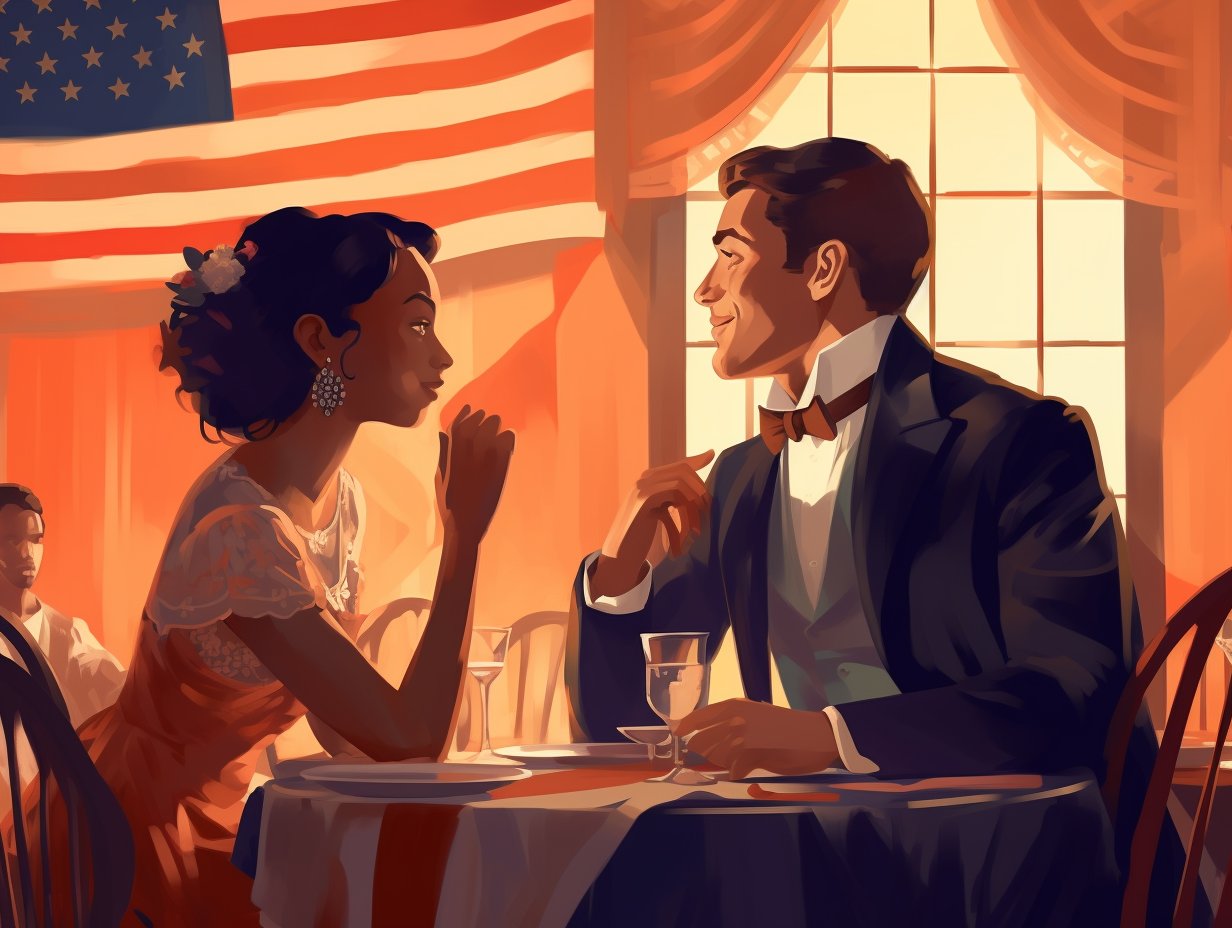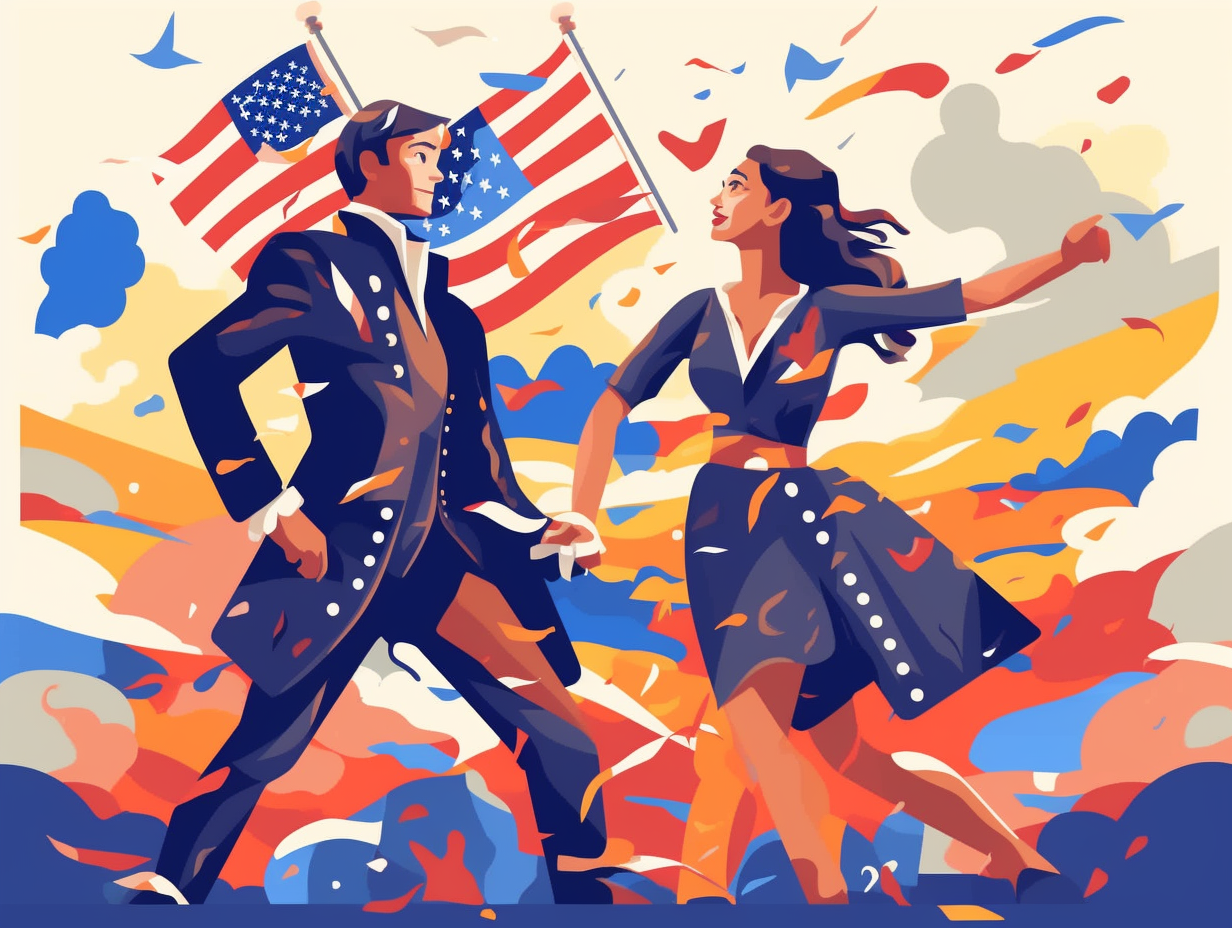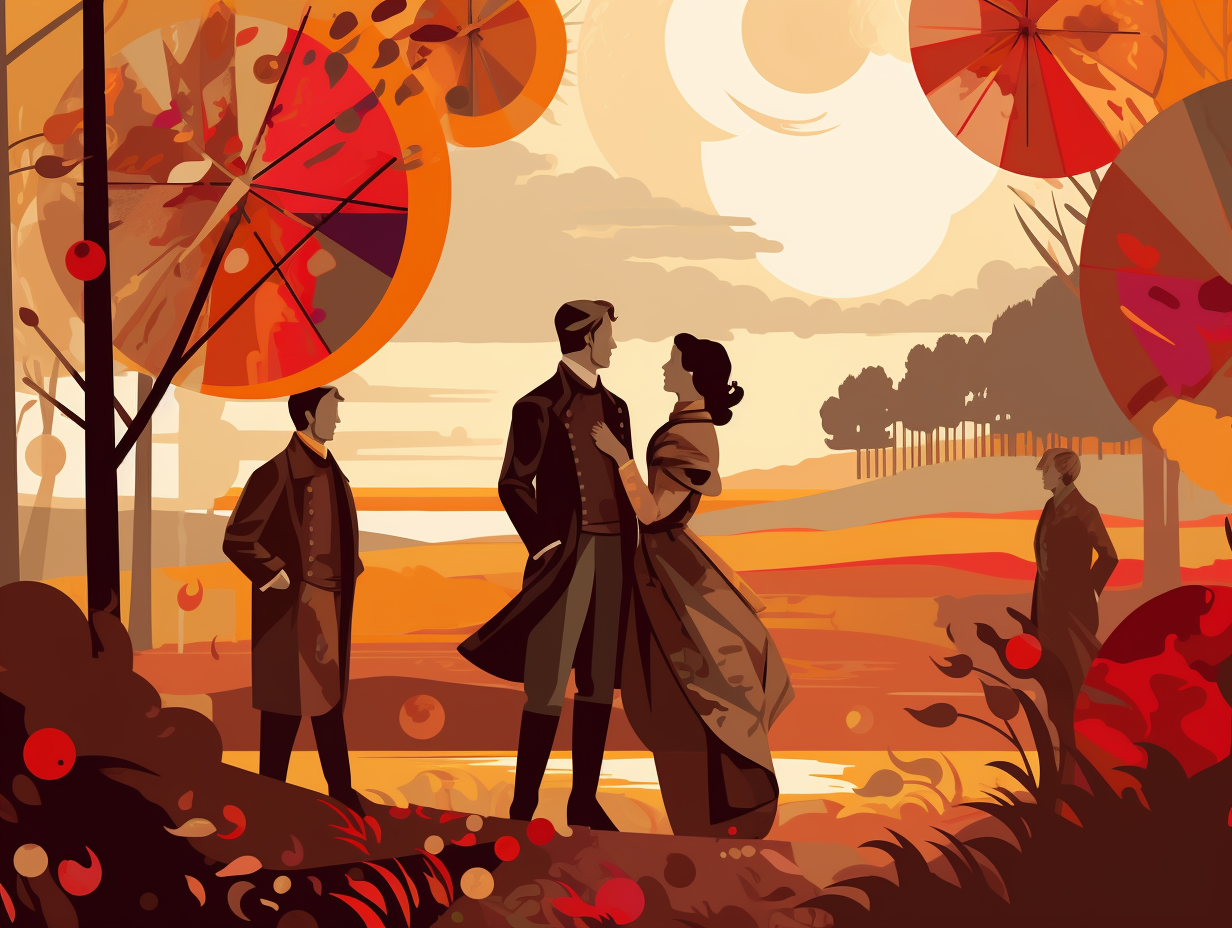Discover the Unexpected: Top 13 Fun Facts About the 14th Amendment You Never Knew!

1. Party-Crashing 14th Amendment
You might think of the 14th Amendment as a party crasher to the exclusive club of 19th-century citizenship: by granting entry to formerly enslaved individuals, it trampled all over the red velvet rope that was the Dred Scott case. The serious reveal: Ratified in 1868, the 14th Amendment overran the 1857 Supreme Court decision that denied enslaved people citizenship, expanded the definition of citizen for all persons born or naturalized in the United States, and set the stage for 20th-century civil rights legislation.
Source => archives.gov
2. Double-Dipping Bill of Rights Bouncer
Guess what else the 14th Amendment's been up to besides securing your right to life, liberty, and The Bachelor: It's been double-dipping as a Bill of Rights bouncer to the states, making sure everyone's equal under the law—even illegal immigrants in cases like Plyler v. Doe. But don't be fooled, because it's also been party to some mischevious monkey business—denying voting rights to a ton of African Americans based on their criminal records, which sneaks in some extra discrimination against minority offenders.
Source => pbs.org

Did you know that Alexander Hamilton, John Jay, and James Madison secretly joined forces as "Publius" to write 85 essays promoting the U.S. Constitution? Discover how these founding fathers went viral in a pre-social media world! 📜✒️🇺🇸
=> Fun Facts about The-Constitution
3. Dred Scott's Melodic Replacement
Step aside, Dred Scott; there's a new amendment in town, and this one's not playing second fiddle to anybody: The 14th Amendment flipped the script on the 1857 Dred Scott v. Sanford case by promoting African Americans to full-blown U.S. citizens, leaving behind Chief Justice Roger B. Taney's dissonant tune that claimed black Americans had "no rights which the white man was bound to respect."
Source => librarycompany.org
4. Captain Inclusivity Strikes
If the 14th Amendment was a superhero, it'd be Captain Inclusivity, swooping in to save the day with a powerful proclamation for equal rights: Adopted in 1868, it declared all individuals born or naturalized in the United States as citizens, guaranteeing them equal protection under the law, requirements for due process, and prohibiting states from denying their privileges or immunities. But don't assume Captain Inclusivity had the power to grant voting rights – that spotlight goes to the 15th Amendment, ratified in 1870!
Source => pbs.org

5. Voting Right Calculations
Ladies, don't try this at home: Back in the day, the 14th Amendment had an ingenious way of keeping states in check when it came to voting rights – If a state dared to deny the right to vote to any of its male citizens above 21, its representation in Congress would be reduced in line with the number of those wronged gentlemen, making sure no states played fast and loose with their citizens' right to vote.
Source => constitution.congress.gov
6. Equal Rights Navigation System
Who needs a GPS when you've got the 14th Amendment to guide your way to equal protection and citizenship? Just remember: follow the map-drafted post-Civil War, ratified on July 9, 1868, it granted citizenship to all people born or naturalized in the United States (including former slaves), extended the provisions of the Bill of Rights to the states, and even politely denied former Confederate states from repaying war debts and compensating former slave owners. Cue the mic drop for equal rights navigation!
Source => senate.gov
7. Congress Hits "Pause"
When Southern states threw a tantrum and said "No" to the 14th Amendment, Congress didn't go back to the drawing board with a master plan of enacting a more powerful version – they just hit "pause" on the process: Eventually, the 14th Amendment was ratified in the same form, granting citizenship to all persons born or naturalized in the United States, abolishing the Three-Fifths Compromise, and barring participants in the rebellion from holding office without Congress' pardon.
Source => courses.lumenlearning.com
8. Goodbye, Classroom Racism!
Once upon a time in American history-ducation, an Amendment stepped up and said, "Move over, classroom racism, your time is up!": The 14th Amendment played a critical role in ending state-sanctioned racial segregation within public schools when the Supreme Court declared it unconstitutional in the 1954 Brown v. Board of Education case, thanks to the amendment's Equal Protection Clause.
Source => archives.gov
9. Colorful Courtroom Companion
Tickle me pink, or should I say tickle me 14th Amendment: This key addition to the United States Constitution has played a crucial role in over 40 Supreme Court cases related to civil rights, gracing the courtrooms with its presence on issues such as voting rights, reproductive rights, and marriage equality – all while adding a dash of color and flavor to the law books!
Source => en.wikipedia.org

10. Reconstruction Train Tango
Hold on to your horses and ride the Reconstruction train – choo-choo! Aboard, we unravel the freedom mystery of the 19th century: The 14th Amendment served a hot new citizenship special to the formerly enslaved people, giving them a slice of equal protection and due process under the law on the go. This American history milestone tangoed with the Bill of Rights, tiptoeing around states' involvement, but ultimately set the stage for a passionate duet between Black and white citizens to make the Amendment's promise a standing ovation.
Source => archives.gov
11. Fairy Godparent of Rights
Behold the 14th Amendment - the guardian, the night watchman, and the fairy godparent of constitutional rights, always keeping an eye out on our Bill of Rights, even if it's not your birthday: This armor-clad amendment not only ensures due process but also prevents life, liberty, or property from being snatched away without a fair hearing, making it a true superhero against government overreach.
Source => constitutioncenter.org
12. Gun-Shenanigan Buffer
Get your kicks with the 14th Amendment's tricks: This bad boy not only serves as a moral and legal GPS, but also sneaks a protective arm against gun-related shenanigans by stating that no one shall be deprived of life, liberty, or property without due process of law, making it a low-key hero in the continued fight for life and liberty, and even playing a part in toppling discriminatory laws like racially segregated schools and bans on interracial marriage.
Source => linkedin.com
13. Post-Civil War Drama Unfolds
Before Game of Thrones, there was Reconstruction; this tale added some drama to the post-Civil War period: The 14th Amendment notably established citizenship and equal protection rights for former slaves, solidifying the definition of rights and citizenship in the U.S., and laying the foundation for how we understand these ideals today.
Source => facingtoday.facinghistory.org
Related Fun Facts




















